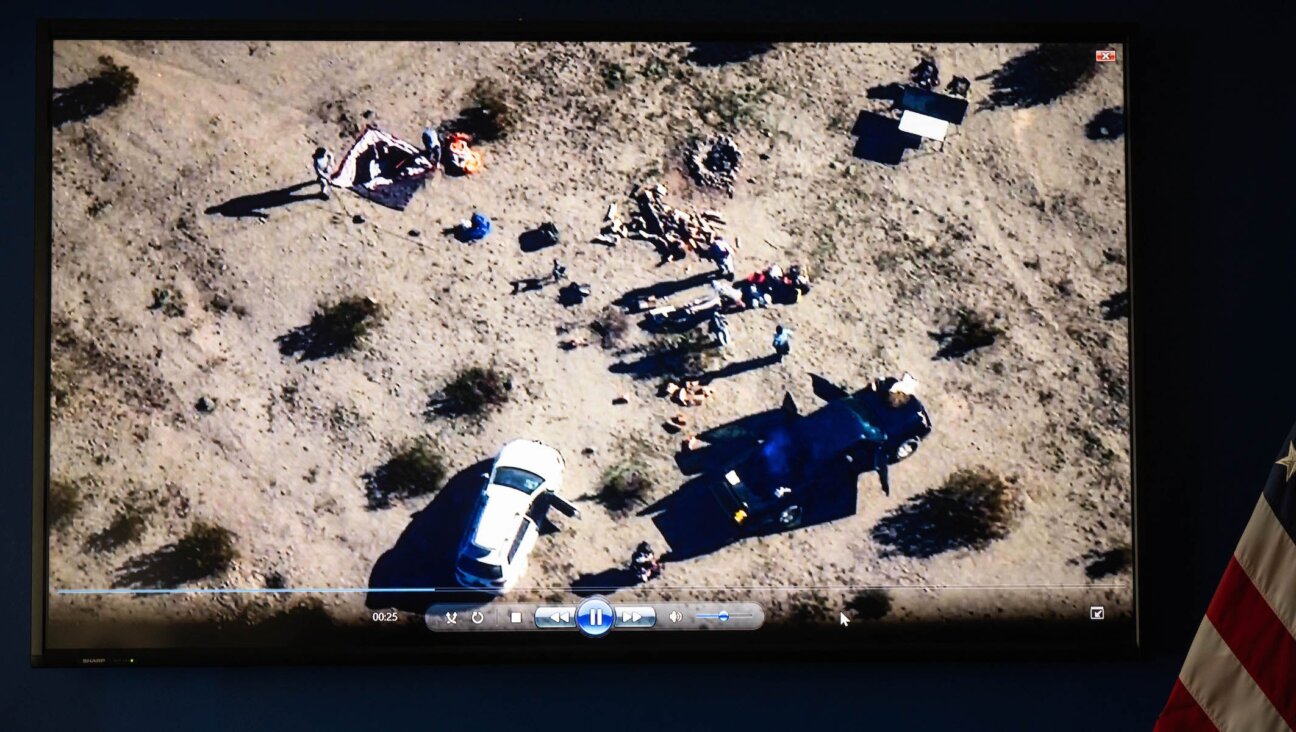Here’s what Jared Kushner read to prepare for his Israeli-Palestinian peace deal

Jared Kushner, Senior Advisor to President Donald Trump, stands for a television interview on FOX News outside the White House on January 29, 2020 in Washington, DC. Image by Drew Angerer/Getty Images
After President Trump unveiled his Israeli-Palestinian peace plan on Monday, White House senior advisor Jared Kushner, one of the key architects of the plan, went on Sky News Arabia to defend his bona fides.
“I’ve been studying this now for three years,” he said. “I’ve read 25 books on it, I’ve spoken to every leader in the region, I’ve spoken to everyone who’s been involved in this.”
Many people on social media mocked the idea that reading 25 books was enough for the former real estate scion to be qualified to craft a major peace plan. “I have just read 25 books and am here to perform your open-heart surgery,” Washington Post humor columnist Alexandri Petri wrote in a fake op-ed.
The White House did not respond to the Forward’s inquiry asking what those 25 books were. But our reporting has uncovered a few of them.
Jonathan Schanzer, the senior vice president for research at the Foundation for Defense of Democracies think tank, said he sent two of his books about internal Palestinian politics, “State of Failure” and “Hamas vs. Fatah,” to Jason Greenblatt, the former White House peace envoy, and personally discussed the latter with him.
Matthew R.J. Brodsky, a senior fellow at the Gold Institute for International Strategy who said he spoke several times with Kushner and Greenblatt while the plan was being formulated, said that Kushner told him he had learned a lot from “Thirteen Days In September,” a book by journalist Lawrence Wright about the Camp David peace negotiations between Israel and Egypt.
And a person who spoke with Trump’s peace team, who asked not to be named because they weren’t authorized to speak about such meetings, said that they saw on Greenblatt’s desk a copy of “The Last Palestinian,” a biography of Palestinian Authority President Mahmoud Abbas, co-written by Grant Rumley, a former FDD researcher now working for the Department of Defense, and Haaretz journalist Amir Tibon. The source said the book was “dog-eared with sticky-notes.”
Schanzer and Brodsky said that Kushner and Greenblatt had met with several think tank researchers who focus on the Middle East, including many who had served as peace negotiators during Democratic administrations. “The number of people who walked through that office is not small,” Schanzer said. He added that he never met with Kushner.
Brodsky, who met with both of them several times, declined to discuss specifics about his conversations with the officials, but confirmed that he provided research and analysis to them upon their request. “At the moment, I am quite comfortable selling the deal, as I have been on national and international media,” he said.
One former negotiator who met with Kushner was Aaron David Miller, a State Department employee under five presidential administrations until 2003. In a video posted online on Wednesday, Miller, now with the Carnegie Endowment for International Peace, said that in their meeting, Kushner had asked him what “success” looked like.
Before crafting the #DealOfTheCentury, Jared Kushner asked veteran negotiator @aarondmiller2 for advice.
He told him these four things: pic.twitter.com/vOZdqbBaLs
— Carnegie Endowment (@CarnegieEndow) January 29, 2020
Miller said the plan would be successful if Israelis, Palestinians, Arab states and the international community reacted by admitting the plan wasn’t perfect, but agreeing that the Trump administration had fairly grappled with the issues and introduced some useful ideas that could be negotiated upon.
“I’m pretty sure, looking at the ‘Ultimate Deal,’ that Mr. Kushner has not achieved that goal,” Miller said in the video.
He told the Forward in an email that in his meeting with Kushner, he also recommended his own book: “The Much Too Promised Land: America’s Elusive Search for Arab-Israeli Peace.”
Aiden Pink is the deputy news editor of the Forward. Contact him at [email protected] or follow him on Twitter @aidenpink














